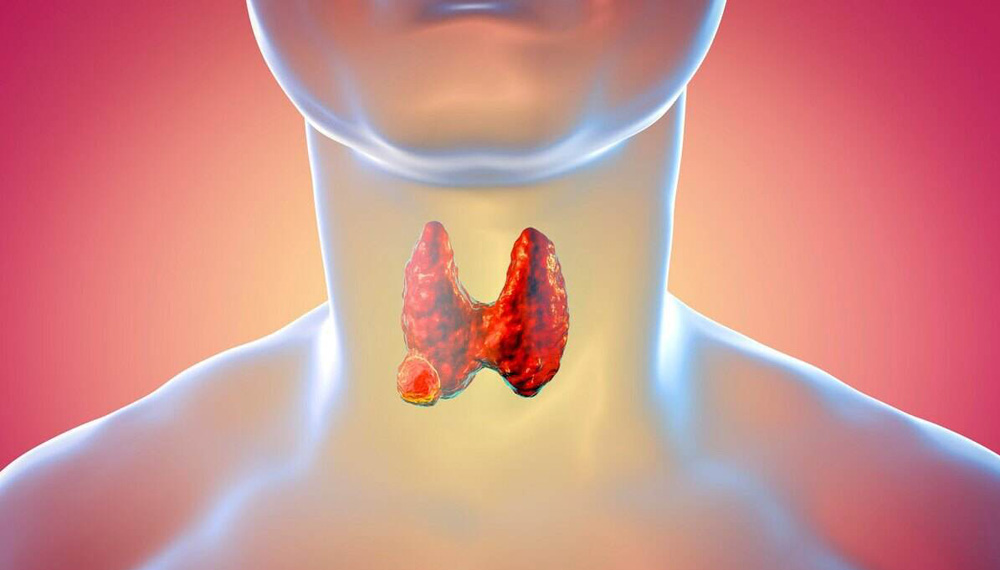Eisai recently announced the final results of a real-world data (RWD) study at the 91st American Thyroid Association (ATA) Annual Meeting in 2022. This study evaluated the clinical efficacy of the oral multi-receptor tyrosine kinase inhibitor Lenvima as monotherapy in the first-line treatment of patients with radioactive iodine (RAI)-refractory differentiated thyroid cancer (DTC).
In February 2015, the U.S. Food and Drug Administration (FDA) approved Lenvima for the treatment of patients with locally recurrent or metastatic, progressive RAI-refractory DTC.
The RWD study, presented at the meeting, included 308 patients receiving Lenvima monotherapy in first-line therapy for RAI-refractory DTC. The median age of patients at the start of treatment was 60 years, 44.8% were diagnosed with stage III or IV disease, and 89.6% developed metastases. By the end of follow-up, 32.1% of patients had discontinued treatment with Lenvima, while 67.9% were still on treatment. The median duration of Lenvima treatment was 17.5 months overall, 9.0 months in the discontinued group, and 20.2 months in the on-treatment group. Kaplan-Meier analysis showed that the median time to discontinuation was 49.0 months (95% CI: 38.5-54.2). Among the 99 patients who discontinued treatment, the most common reasons were disease progression (36.4%) and death (32.3%)
The final analysis of the RWD study showed that among patients treated with Lenvima, the best overall response rate (BOR) was 72.4%, the complete response rate (CR) was 26.9%, and the partial response rate (PR) was 45.5%. Median progression-free survival (PFS) was 49.0 months (95% CI: 37.0-54.2), with estimated PFS rates of 68.2% at 24 months and 54.2% at 48 months. Median overall survival (OS) was not reached at data cutoff. The estimated OS rate was 78.4% at 24 months and 57.0% at 72 months.
“The evidence from the RWD study supporting the clinical efficacy of Lenvima in real-world clinical practice is encouraging for oncologists and patients with RAI-refractory DTC,” said Dr. Takashi Owa, Chief Scientific Officer and Senior Vice President, Eisai. This is a challenging disease where cancer persists or recurs despite RAI therapy. Locally recurrent or metastatic, progressive, radioactive iodine-refractory differentiated thyroid cancer is the first approved indication for Lenvima and we remain committed to Meeting the needs of these patients and improving their lives is part of our Human Health Care (HHC) mission.”
Thyroid cancer is the most common endocrine malignancy with global data showing an increasing incidence. It is estimated that there will be 43,800 new cases of thyroid cancer in the United States in 2022, and women are three times more likely to develop thyroid cancer than men. The most common types of thyroid cancer, papillary and follicular carcinomas (including Hürthle cells), are classified as DTCs and account for approximately 90% of all cases. While most DTC patients can be cured with surgery and radioactive iodine (RAI) therapy, those whose cancer persists or recurs have a poor prognosis.
Lenvima is a kinase inhibitor discovered and developed by Eisai. The drug is an oral multi-receptor tyrosine kinase (RTK) inhibitor that inhibits vascular endothelial growth factor receptors VEGFR1 (FLT1), VEGFR2 (KDR) and the kinase activity of VEGFR3 (FLT4). In addition to inhibiting normal cell function, Lenvima inhibits other kinases involved in pathogenic angiogenesis, tumor growth, and cancer progression, including fibroblast growth factor (FGF) receptors FGFR1-4, platelet-derived growth factor receptor alpha (PDGFRα), KIT and RET, Lenvima reduces tumor-associated macrophages and increases activated cytotoxic T cells.
Up to now, Lenvima’s approved indications include: thyroid cancer, hepatocellular carcinoma (HCC), combined with everolimus for renal cell carcinoma (second-line therapy), combined with Keytruda (Keytruda, PD-1 tumor immunotherapy) Treatment of advanced endometrial cancer. In Europe, lenvatinib for renal cell carcinoma is marketed under the brand name Kisplyx.









